Project Montessori: Nurturing Independent Learners Through Hands-On Education
In the bustling world of educational philosophies, one approach that stands out for its unique blend of freedom and structure, curiosity-driven learning, and respect for the child's natural psychological development is Montessori education. Known as "Project Montessori," this movement aims to implement the Montessori method more broadly, not just within the confines of schools but as a lifestyle embraced by families worldwide.
What is Project Montessori?
At its core, Project Montessori is not merely an educational method but a transformative journey for children, educators, and parents alike. It encapsulates the essence of Dr. Maria Montessori's vision: creating environments where children can explore, learn, and grow at their own pace, guided by their interests and innate curiosity.Continue below >>
Multiplication Games | Addition Games| Subtraction Games | Telling Time Games | Fraction Games |
Kindergarten Math Games
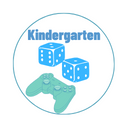
Play free preschool and kindergarten math games for kids. Fun math activities for kindergarten
Go to page1st Grade Math Games
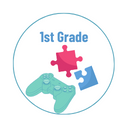
Math games for 1st grade students to play games and practice different math topics. Maths games for class 1
Go to page2nd Grade Math Games
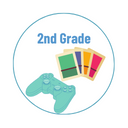
2nd grade math games for kids to play and practice math problems. Maths games for 2nd class
Go to page3rd Grade Math Games
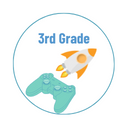
3rd grade math games for kids to play and practice math problems. Maths games for class 3
Go to page4th Grade Math Games
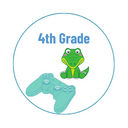
4th grade math games for kids to play and practice math problems. Fun math activities for 4th graders
Go to page5th Grade Math Games
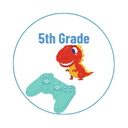
5th grade math games for kids to play and practice math problems. Cool math games for 5th graders
Go to page6th Grade Math Games
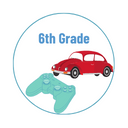
6th grade math games for kids to play and practice math problems. Math jeopardy 6th grade.
Go to page7th Grade Math Games
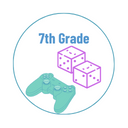
7th grade math games for kids to play and practice math problems. Math games for grade 7
Go to page
The Philosophy Behind
Dr. Maria Montessori, an Italian physician and educator, developed the Montessori method in the early 20th century based on her observations of children's natural learning tendencies. She believed in the child's ability to initiate learning in a supportive, prepared environment. This foundational philosophy of respecting the child's individual learning process is what Project Montessori aims to proliferate.
The Montessori Method Explained
Core Principles of Montessori Education
The Montessori method is built on several key principles: respect for the child, the absorbent mind, sensitive periods, and the prepared environment. These principles guide the creation of Montessori environments, whether in schools or homes, facilitating a child-centered approach to education.
Montessori at Home vs. School
While Montessori schools offer a structured environment designed according to Montessori principles, incorporating Montessori at home can be equally impactful. It involves setting up the living space to encourage independence, choosing activities based on the child's current interests, and allowing them to explore freely within safe boundaries.
Benefits of Montessori Education
Fostering Independence
One of the most significant benefits of Montessori education is the emphasis on independence. Children are encouraged to do things by themselves, from choosing their activities to solving problems, which fosters a strong sense of self-reliance and confidence.
Encouraging Love for Learning
Montessori education nurtures a love for learning by making education a joyous, discovery-driven process. Children are naturally curious, and the Montessori method leverages this curiosity by providing opportunities for hands-on learning and exploration.
Personalized Learning Paths
Each child is unique, and the Montessori method honors this by allowing children to follow personalized learning paths. This approach ensures that learning is always aligned with the child's interests, pace, and developmental stage.
Implementing Montessori Principles at Home
Practical Life Activities
Introducing practical life activities at home is a straightforward way to incorporate Montessori principles. These activities include tasks like dressing, cooking, and cleaning, which are adapted to be accessible for children, enabling them to participate in everyday life.
Sensorial Activities
Sensorial activities play a crucial role in Montessori education, helping children refine their senses and understand the world around them. These activities can easily be introduced at home using simple materials and are essential for cognitive development.
Montessori Materials and Their Importance
Must-Have Montessori Materials
Certain Montessori materials are fundamental to the method, designed to support specific developmental needs and learning goals. These include items like the pink tower, sandpaper letters, and knobbed cylinders.
DIY Montessori Materials
Not all Montessori materials need to be purchased; many can be DIYed or substituted with everyday items. This approach makes Montessori more accessible and adaptable to various settings and budgets.
Montessori for Different Age Groups
The Montessori method can be adapted for various age groups, each with its focus areas and materials. From infants and toddlers to preschoolers and elementary-age children, Montessori supports a continuum of learning that respects the developmental stage of each child.
The Role of Technology in Montessori Education
Balancing technology and hands-on learning is a contemporary challenge within Montessori education. While technology can offer valuable learning opportunities, it's essential to ensure it doesn't overshadow the hands-on, exploratory learning that is central to Montessori.
Criticisms and Challenges of Montessori Education
Despite its many benefits, Montessori education faces criticisms and challenges, such as perceptions of elitism, the adaptability of the method to diverse learning needs, and the implementation fidelity in different educational settings.
Success Stories and Testimonials
The impact of Montessori education is best illustrated through success stories and testimonials from parents, educators, and students. These narratives showcase the profound effect Montessori can have on children's development, learning, and overall well-being.
How to Choose a Montessori School
Choosing the right Montessori school involves considering factors such as the school's adherence to Montessori principles, the training of its educators, and the overall environment and community.
Conclusion
Project Montessori represents a holistic approach to education that goes beyond academics, aiming to nurture well-rounded, independent, and lifelong learners. By embracing the principles of Montessori education, we can provide children with the tools they need to navigate the complexities of the world with confidence, curiosity, and a deep-seated love for learning.
FAQs
- What age is best to start Montessori education?
- Can Montessori education work for children with special needs?
- How does Montessori address different learning styles?
- What are the main differences between Montessori and traditional education?
- How can parents support Montessori learning at home?
-
What age is best to start Montessori education?
Montessori education can be started at a very young age, with many Montessori programs accepting children as young as infancy (around 6 months). However, the most common age for starting Montessori education is around 2.5 to 3 years old, when children can enter into a Primary Montessori classroom. This early start is beneficial as it aligns with critical periods of development in young children, where they are especially receptive to learning through Montessori’s hands-on, sensory-based educational approach.
Can Montessori education work for children with special needs?
Yes, Montessori education can be very effective for children with special needs. The Montessori method's individualized learning approach allows it to be tailored to the unique abilities and interests of each child, including those with special needs. The environment is designed to be inclusive and supportive, fostering a sense of belonging and success for all children. Montessori educators are trained to observe and respond to the individual needs of each child, potentially offering specialized materials or adapting lessons to meet those needs. However, the extent to which a Montessori program can accommodate a child with special needs may vary depending on the specific school and the resources they have available.
How does Montessori address different learning styles?
Montessori education addresses different learning styles through its emphasis on individualized instruction and the use of multisensory materials. The Montessori classroom is designed to cater to visual, auditory, kinesthetic, and tactile learners, with materials that students can see, touch, manipulate, and explore at their own pace. This hands-on approach allows children to engage with concepts in a way that suits their personal learning style, making it easier for them to understand and retain information. Additionally, because students are encouraged to choose their activities, they naturally gravitate toward learning modalities that work best for them, further personalizing their educational experience.
What are the main differences between Montessori and traditional education?
The main differences between Montessori and traditional education include:
- Learning Pace and Style: Montessori education is self-paced and individualized, allowing children to explore subjects at their own pace. Traditional education often follows a set curriculum at a pace determined by the teacher or standards.
- Role of the Teacher: In Montessori classrooms, teachers act as guides or facilitators, observing and assisting as needed. In traditional classrooms, teachers typically lead the class and direct learning.
- Classroom Environment: Montessori classrooms are designed to encourage independence and exploration, with accessible, self-correcting materials. Traditional classrooms are often arranged with desks facing a teacher or a board.
- Curriculum Focus: Montessori education emphasizes a holistic approach, integrating physical, social, emotional, and cognitive development. Traditional education often focuses more on academic achievements and standardized testing outcomes.
- Age Grouping: Montessori classrooms usually have mixed-age groups, which fosters peer learning and mentorship. Traditional classrooms typically group children by age.
How can parents support Montessori learning at home?
Parents can support Montessori learning at home by creating an environment that reflects the Montessori principles of independence, choice, and respect for the child’s natural psychological development. Here are some ways to do this:
- Prepare the Environment: Arrange your home to be accessible and inviting for your child. Use child-sized furniture and ensure that toys and materials are within easy reach, allowing for independence in selecting activities.
- Incorporate Practical Life Activities: Encourage your child to participate in everyday activities like cooking, cleaning, and dressing themselves. These tasks help develop fine motor skills and a sense of responsibility.
- Offer Choices: Just as in the Montessori classroom, provide options for your child to choose from, fostering independence and decision-making skills.
- Follow the Child: Pay attention to your child’s interests and offer activities and materials that match these interests. Observing and responding to your child’s needs and curiosity supports their natural desire to learn.
- Encourage Concentration: Allow your child uninterrupted time to focus on their activities without stepping in too quickly to help. This helps build concentration and perseverance.
- Model Respect and Kindness: Demonstrate respectful communication and kindness in your interactions, as Montessori emphasizes social and emotional development as much as academic learning.










